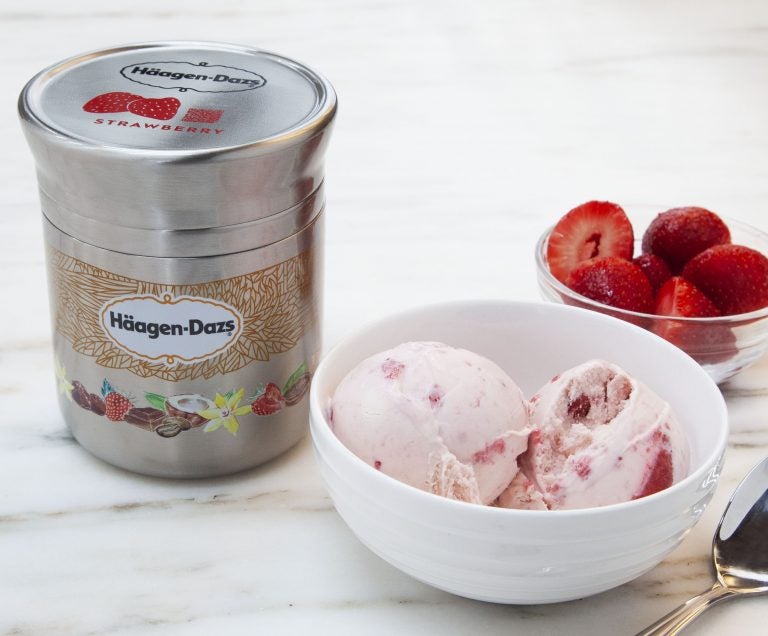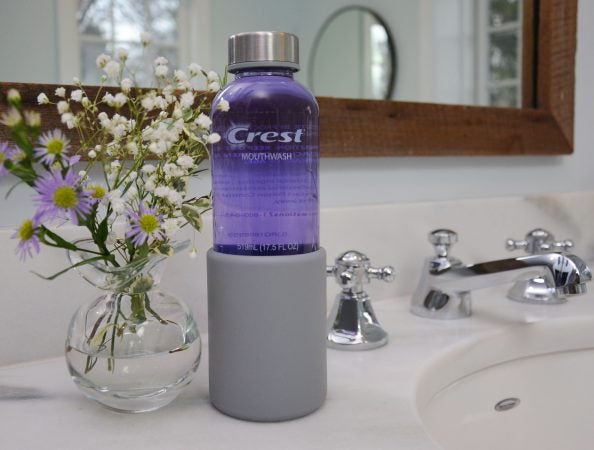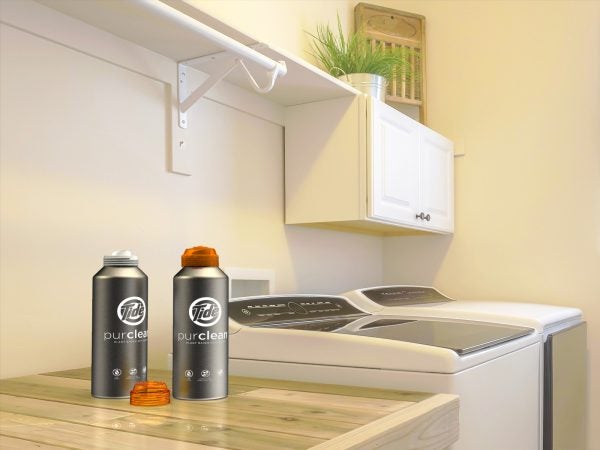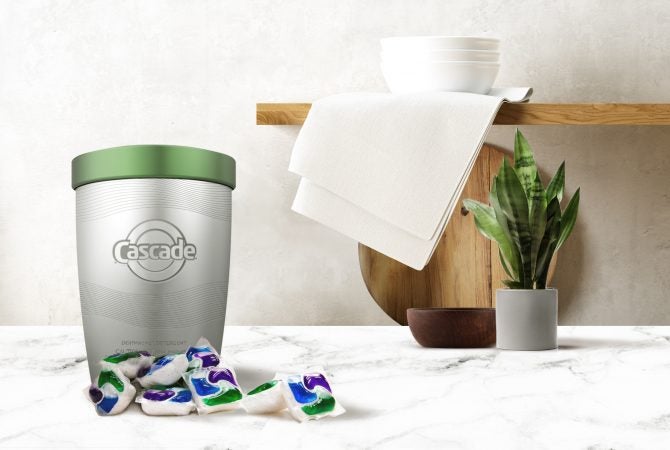Haagen Dazs, Procter & Gamble to offer reusable containers in Pa., N.J.

TerraCycle has an ambitious goal: get rid of all waste.
Founder Tom Szaky has made some progress. His Trenton company recycled diapers, and made Head and Shoulders shampoo bottles from plastic waste collected from beaches.
But then he realized, “Recycling and making things from recycled material, while critically important, is not going to solve the problem of waste.”
The U.S. produces millions of tons of waste in the form of juice cartons, plastic bottles, and other containers every year, according to the latest data available from the Environmental Protection Agency.
Szaky thought: What if we don’t throw away all those bottles and cartons to begin with?
He worked with major brands such as Procter & Gamble, Nestle, and PepsiCo on a different solution — reusable containers that you can bring back to the store.
The platform, called Loop, is coming to Pennsylvania, New Jersey, and New York in May. Shoppers in those states can sign up online, then go to some grocery stores to buy ice cream, shampoo, laundry detergent, and other products in reusable containers.

A new initiative through TerraCycle will bring products like Crest to local stores in reusable packaging (Provided) 
A new initiative through TerraCycle will bring products like Tide to local stores in reusable packaging (Provided) 
A new initiative through TerraCycle will bring products like Cascade to local stores in reusable packaging (Provided)
Szaky said that a section of participating stores “will effectively become the package-free aisle,” similar to the separate aisles some stores have for organic food.
You don’t have to clean the containers afterward, just bring them back to the store. TerraCycle will collect them, clean them, and get them to the manufacturers to be refilled and reused. The products’ prices should be more or less the same, though some could cost a little more. The companies pay TerraCycle a fee to be part of this system.
Szaky said it will be a little like old milk deliveries or refillable Coke bottles, which stopped being used when plastic containers became vastly more popular.
“Today, when you buy, say, some Tide laundry detergent, you buy the detergent but you’re also paying for a hundred percent of the price of that currently single-use package.”
With Loop, he said, you’ll pay a small deposit on the reusable container that you can get back. That way, you have an incentive to reuse it, instead of throwing it away. You can also get products delivered to your door, for a shipping fee.
He’s already got some major retailers lined up in Pennsylvania and New Jersey, he said, but he can’t announce which ones until May, when the pilot starts.
The big companies that are part of the Loop platform, like PepsiCo, Nestle, Unilever, and Procter & Gamble, have been under pressure to reduce their waste footprint. Last year, a group of investors that manages more than $1 trillion in assets demanded that they use less plastic packaging. Greenpeace named them on a Top 10 list of offenders creating throwaway plastic.
Maurice Sampson was the recycling program administrator for Philadelphia in the late 1980s and is now eastern Pennsylvania director for the environmental group Clean Water Action. If the Loop platform works, it could be huge, he said.
“Reusables is a gold standard,” Sampson said.
It isn’t an entirely new concept, he added. Disposable plastic containers only go back a few decades, and people in this country used to get beer and other drinks in refillable glass bottles. They’d pay a deposit on those bottles, and could return them at stores to get their money back.
During his childhood in Houston in the 1960s, Sampson said, “my buddies from those days, when we wanted money to buy hot dogs and have a little cookout, we would steal the returnable bottles off of Mrs. Jones’ back porch … We’d maybe get a couple dollars for the case that they would come in, and then we would use the money to have a little barbecue.”
Some states, including New York, still have beverage container deposit laws, or bottle bills, on the books. Under those laws, a shopper pays a deposit for drink containers or cans and returns them to the store for money back.
But the New York comptroller said in 2017 that the state should do a better job with the program because a lot of people didn’t return their bottles and cans, sending more than $102 million in 5-cent deposits back to an environmental protection fund.
Delaware had a bottle bill for 28 years, but replaced it in 2010 with a nonrefundable, 4-cent recycling fee.
Recently, The Philadelphia Inquirer reported that half the recyclables collected in the city go straight to an incineratorbecause China doesn’t buy them unless they are well cleaned and free of contaminants. Julie Hancher, co-founder of Green Philly, a sustainability website, said that makes people frustrated or disappointed with recycling, but they shouldn’t give up on it.
“It’s actually a great opportunity to to re-evaluate what we can be doing in a positive direction, and there is a lot of room for entrepreneurs and people to actually come up with solutions.”
